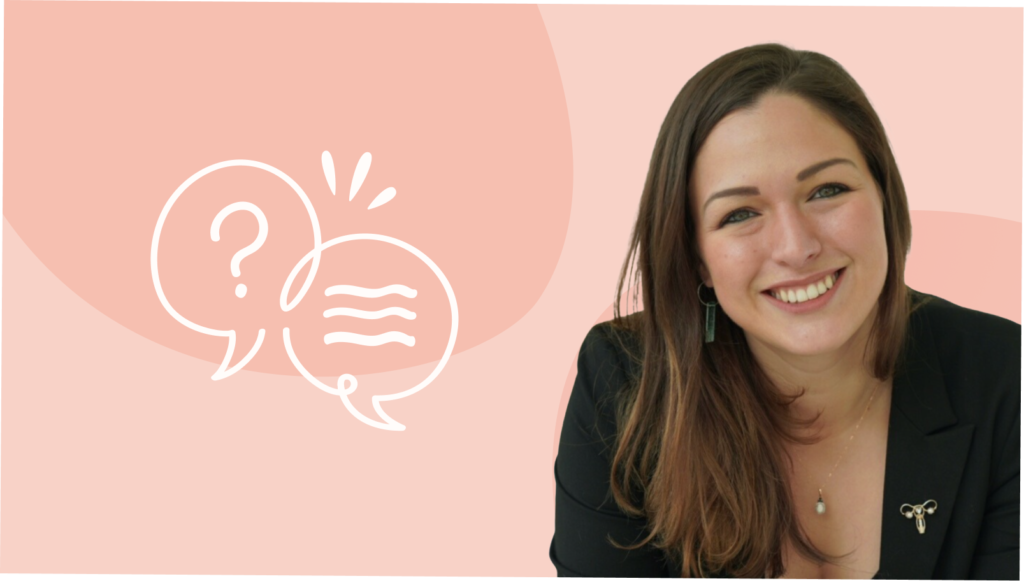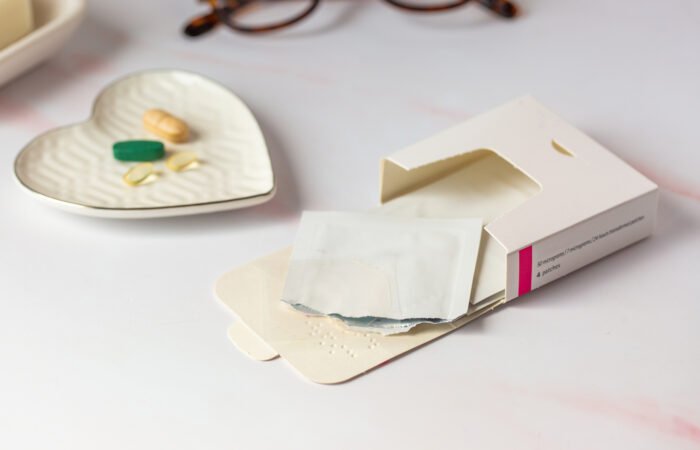
The Femtech movement has gone from buzzword to billion-dollar sector in less than a decade. But for geneticist, entrepreneur, author and advocate Dr. Brittany Barreto, it’s much more than a trend. In this interview, Coral CEO Fiona Lake Waslander sat down with Dr. Barreto to hear her insights on why women’s health has historically been overlooked, how Femtech companies are closing the care gap, and what still needs to change.
Drawing from her best-selling book Unlocking Women’s Health and her experience as a founder, investor, and educator, she paints a hopeful picture of a future where care is more inclusive, personalized, and accessible than ever.
Q1: Why do you think Femtech has grown so rapidly in such a short time?
Let me start with a bit of background. The term Femtech was actually coined in 2016 by Ida Tin. She’s the founder of Clue, which is the world’s biggest period tracking app. At the time, she was at a conference in New York and trying to explain how technology designed for women’s health didn’t quite fit into the traditional definition of healthcare. There were other layers to consider. So she said, why not give it its own category? And just like that, Femtech was born.
It’s interesting to think that the concept is less than a decade old. Women have always existed. So has healthcare. And so has technology. But for some reason, tech that addresses women’s health as its own category is still seen as new.
Well, essentially, our backdrop to science is based on a male paradigm. Scientists have been using male cells, male animals, and male humans in clinical trials. Even today, that’s still often the case. And so, quite literally, we have not been studying women. The thinking was that if we studied males, the results would apply to females too. Researchers didn’t want to “deal with” the hormonal fluctuations in women because they thought it would complicate the data. But here’s the thing: women aren’t just little men. We need our own science. Our biology is different, and it changes a lot over time, especially from puberty through menopause.
That’s why the field stayed stagnant for so long. It wasn’t until scientists began recognizing sex and gender as important biological variables that real change started happening.
Since then, there has been this huge influx of growth. Right now, there are more than 1,700 women’s health startups worldwide, and half of them were founded in just the last five years. So what’s driving that momentum? It’s a few things.
First, the rise of women in STEM. Women today are leading the way as doctors, scientists, engineers, and tech developers. And many of them have lived experience. They’ve waited years for diagnoses, like endometriosis, which can take up to a decade to identify. Instead of waiting, they’ve decided to build the solutions themselves. Some are clinicians who are tired of seeing their patients dismissed or underserved, and they’ve decided to step in and create something better.
We’re also seeing more women in finance, which is a huge piece of the puzzle. Women investors are much more likely to fund companies that speak to their own health experiences. If you pitch a menopause company to a room full of men, it might not click. But if you talk to a woman who’s currently having a hot flash about a menopause company? She will likely say, “please take my money!”
And beyond the rise in STEM and finance, we’re also seeing a destigmatization. Conversations around periods and other women’s health topics are becoming more open. We’re seeing free menstrual products in public washrooms. Corporations are beginning to realize that women’s health directly impacts productivity and business outcomes, especially now that women make up half the workforce.
All of these shifts—cultural, scientific, and economic—have come together to create the momentum we’re seeing in Femtech today.
Q2: At Coral, we focus a lot on midlife women, especially around perimenopause. Are there particular areas in that space where you think Femtech can really make a difference?
I think one of the most exciting opportunities is expanding who gets to participate in supporting women’s health. Historically, care wasn’t always centered around medical doctors. It was often midwives or women helping other women. And honestly, I don’t think we should feel like we have to rely exclusively on an MD for every single health need.
So much of women’s health is about personalization, whether it’s adjusting your diet or exploring Eastern medicine like acupuncture or sauna therapy. These aren’t things you necessarily need a physician for, but they still play a major role in well-being. I think that women’s health is a holistic health.
The current medical system is very rooted in a traditional Western model. It’s structured around this idea that there’s one male doctor with an MD, and they hold all the answers. But that model creates a bottleneck. It’s expensive, it’s often inaccessible, and it just doesn’t reflect the full range of care women actually need.
Femtech has a real chance to broaden the scope of who can be part of a woman’s healthcare journey. That might include nutritionists, health coaches, mental health professionals, or even life coaches. Not every situation requires a psychiatrist. Sometimes, you just need someone to talk to—someone who can help you navigate postpartum depression, menopausal rage, or other transitions, while still remaining under the supervision of a physician when necessary.
It’s about adding more support, not replacing anyone. And that expanded network can make a huge difference.
Q3: What sets top Femtech companies apart in how they deliver care—especially when working with a broader range of practitioners?
I think having socialized healthcare coverage is absolutely essential. So if you’re a Femtech company and you’re not thinking about the underinsured and the uninsured, you’re overlooking a massive group of women who actually need access to care the most. Sometimes, they need it even more urgently than those with private insurance.
Another big piece is telehealth and virtual care. During the pandemic, we learned that over 50 percent of counties in the U.S. don’t have a single OB-GYN. That’s huge. You can’t reasonably expect a woman to drive six hours just to get a routine well-woman exam. Most won’t, and honestly, most can’t. So we need to rethink how care is delivered. For example, imagine offering an at-home Pap smear kit and then scheduling a virtual follow-up with a doctor through a mobile app. That kind of hybrid care model is incredibly powerful.
The pandemic put a lot of strain on the healthcare system, but it also exposed deep cracks that were already there. Technology became a way to patch some of those gaps and in many ways, it ended up being a huge benefit for women in particular.
Women in rural areas have long struggled to access care. And even beyond geography, women are often juggling so many roles: working, caregiving, managing their own health, often without much support. Plus, there’s this ongoing cultural narrative that women shouldn’t prioritize their own well-being. So driving long distances or carving out time during the workday for an in-person appointment often just didn’t happen.
But if you tell that same woman she can text a doctor at 11 p.m. and wake up to a filled prescription—maybe even have it delivered to her door within 48 hours—now you’re talking about care that actually fits into her life. A lot of that momentum started during the pandemic, and I’m so glad it stuck around. I really believe it’s the North American woman who benefited most.
Q4: So looking ahead, what excites you most about the future of Femtech? Are there any trends or breakthroughs you think could really reshape women’s health?
Honestly, I think what excites me the most is just the fact that we’re finally starting to learn about women’s bodies. It seems so basic, but it’s groundbreaking. Something as simple as how much sleep a woman actually needs is still being figured out. And now, I’m starting to see a shift in how we talk about exercise and nutrition too.
For so long, we’ve been told to follow all these one-size-fits-all trends like fasting, cutting carbs, high-intensity workouts. But lately, I’m seeing more and more conversation around how important strength training is for women, especially for bone health. I have a feeling that in the next decade, we’re going to see a real cultural shift. I think the standard of beauty is going to change. We’ll start to celebrate women with muscle—women who are strong and visibly powerful.
To me, strength is health. And as we continue to study female biology, I think that knowledge will lead to broader cultural changes. Women today are more open than ever to rejecting outdated expectations. They want to know what’s actually good for their bodies, and they’re ready to make choices based on facts, not trends. Even if it means decreasing potential attractiveness, they’re saying, “If it’s better for my health, that’s what I’m doing.”
And Femtech is playing a huge role in that shift. The data we uncover and the research we support is going to influence how women see themselves for years to come.
It’s so empowering to finally learn about what actually works for your body, to know what makes a difference instead of constantly stressing over the latest trends. Like fasting, for example. It doesn’t always work for women the way it’s advertised, because our hormone cycles aren’t the same every day. We don’t run on a 24-hour hormonal rhythm like men do. Maybe fasting can work, but only during certain phases of the menstrual cycle, like the luteal or follicular phase. But no one’s really accounting for that yet.
Q5: So how do we get more money into this kind of research? How do we learn more?
Honestly, we need the people who vote on budgets, to either have uteruses or genuinely care about those who do. That’s really the bottom line.
Ideally, they’re someone who has firsthand experience with these issues, so it becomes a no-brainer to vote in favor of women’s health research. But if they don’t, then empathy needs to come into play. And when empathy isn’t enough, there’s a strong economic case for investing in women’s health. Women make up half the population. When half the population is unwell, national healthcare costs go up. Productivity declines. GDP takes a hit. And companies lose out big time.
If the argument was simply that women are suffering and deserve better, we probably would have seen more funding by now. But that kind of moral appeal doesn’t always lead to action. What moves decision-makers like politicians, investors, or healthcare leaders, is when you show them the financial consequences.
Take menopause as an example. Companies are investing heavily in women in leadership, but then those same women are leaving because their symptoms are so disruptive, things like brain fog, insomnia, and fatigue. It becomes too much, and they burn out or retire early. That’s a massive loss of talent and resources. So when you frame it like this—investing in women’s health helps your bottom line—it finally clicks for those in power. And yes, they’ll say, “Women deserve this.” But the reason they actually show up, support the cause, and put money behind it is because they now see the cost of not doing so.
Q6: At Coral, we talk about that all the time. We say, “If women are well, everyone is well.” So how does that idea play out in practice? And how can we, as companies, help move that forward faster?
Well, for starters, women now make up 50% of the workforce. And honestly, we’ve done a whole lot, even while feeling unwell. That’s a huge testament to women’s resilience. Women are also the Chief Medical Officers of their households. They’re making healthcare decisions not only for themselves, but for their children, their partners, their aging parents. They’re often the ones managing the schedules, the doctor’s appointments, the medications—the mental load.
Now picture a woman dealing with intense brain fog, which, by the way, isn’t even a recognized medical term because no one has studied it enough to properly define it. But it’s real. When she’s in that state, things start to fall through the cracks. She might forget appointments. She might pass up an opportunity to volunteer or say no to something she really cares about. Maybe she tells her child they can’t join a program or camp because she’s too overwhelmed to manage it. These small moments add up.
And then there’s the emotional and psychological toll. A child seeing their mom frequently bedridden or in tears. A partner noticing the strain. Intimacy, relationships, work all gets affected. So when we say “women’s health is everyone’s health,” we mean that improving her well-being improves everything around her. Whether it’s a family, a workplace, or a whole community, if the women at the center of it are given the right tools, the right medications, timely diagnoses, and understanding care, everyone benefits. If she’s functioning at 70% because her symptoms are misunderstood or untreated, that means 30% of her potential energy, love, productivity, and creativity is missing from the world. We all gain from giving her that 30% back.
Dr. Barreto’s message is clear: when women are well, everyone benefits. As women finally acquire the language, data, and platforms to speak openly about their health, we’re seeing a paradigm shift. Not just in how care is delivered, but in who gets to shape the future of medicine.
In her book Unlocking Women’s Health and her podcast FemTech Focus, Dr. Brittany Barreto demystifies the femtech movement as she uncovers the breakthroughs, barriers, and bold voices reshaping care for women around the globe. Dr. Barreto’s desire for change will inspire a new norm in women’s wellness, and she calls on everyone to join her mission.
Femtech isn’t about reinventing healthcare. It’s about expanding it.
Learn more about Dr. Barreto: https://www.drbrittanybarreto.com/
Disclaimer: The information provided here is for informational purposes only. It is not intended as medical advice. Always consult with your doctor or healthcare provider to determine what is best for your individual health needs.




